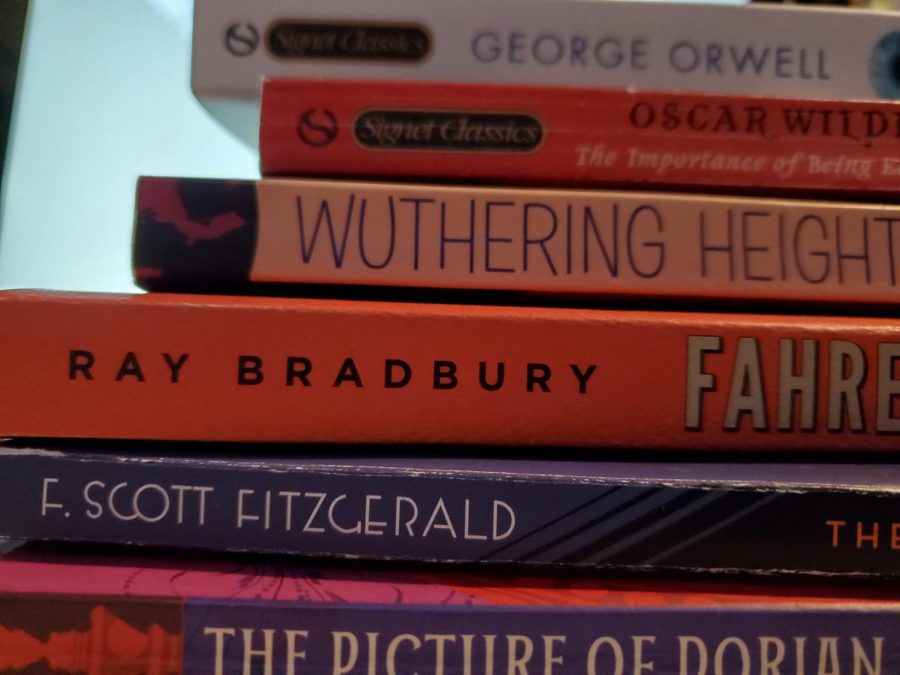According to Lily: What Even is Classic Literature?
A stack of beloved classics.
March 19, 2020
Any high school student knows the dreaded genre of literature that is labeled as “classics.”
It’s what is most often taught within high school English classes and has become one of the most disliked genres of books by a number of teenagers simply because of its association with education.
Traditionally, people think of age when constituting a book as a classic: the older the book, the more likely that people consider it to be a classic.
Personally, I base the idea of a classic upon how old they are and how long of a lasting effect they have left on the world of literature and society, at large. Both of these play into each other and go hand-in-hand because it is hard to be able to tell what effect a book has if it has come out recently. I can fairly say that something like The Great Gatsby by F. Scott Fitzgerald has had a major effect on books and how certain aspects of life are portrayed, but I can’t as easily say that something like The Martian by Andy Weir has had a long-lasting effect, thus, I consider it a classic.
Another classic author/work that I love that has had a lasting effect on modern culture is the Irish poet Oscar Wilde, and his novel The Picture of Dorian Gray. This novel tells the tale of a man who, wanting to relish in everlasting youth, inadvertently sells his soul. In doing so, the painting reflects his sins as he falls deeper and deeper into a life of sin and hedonistic actions. This has inspired countless media pieces that focus on that same desire for nothing but the pleasures in life, such as in the Donna Tartt novel The Secret History.
I also think that the effect of a novel on society has to do with its relevance to the culture of the readers time period. The themes of alienation and feelings of being rejected that are present in Frankenstein by Mary Shelley in 1818 are still very much relatable to a number of people in the modern era, showing how this book has a quality to it that makes it classic and long-lasting.
Quite a few people also point to classics being classics because they have some form of influence on future pieces of writing or movies. I think that this definitely is a big deciding factor in whether or not a novel is a classic. For example, the themes of dystopias like 1984 by George Orwell and Fahrenheit 451 by Ray Bradbury inspired modern novels like the ever-popular Suzzane Collins trilogy The Hunger Games, with themes of oppressive governments and a desolate state of living.
Basically, according to me, a classic is a novel that has left a long-lasting impact on society and literature, which infers a certain level of age. I also think that it has to have had some sort of influence on how literature functions at large. Honestly, besides what has been mentioned previously, not much differentiates a classic from a modern book. So, next time you’re assigned a classic for an English class, think about its impact.



fejiro • Aug 15, 2020 at 9:37 am
literature is an amazing subject. the genres of literature make it easier for students to understand its concept. I have always wanted to be a literature critic ever since I was introduced to the genre of literature. the way each genre is presented in their own unique way makes it an enjoyable subject to me. classic literature is what I enjoy most. thanks for sharing. If you are looking for an amazing site to get more information, then I have what you need. This link would grant you access to interesting articles that would be very useful and informative to you, and I would appreciate it if you visit my site. Many thanks.